<<Read time: 4 minutes>>
With the development and deployment of the atomic bomb in World War II, the dynamic of war changed along with the post-war political climate. When the Soviet Union developed its own atomic bomb in 1949, the U.S. military realized they needed to catch up with and keep ahead of the USSR’s nuclear program.
By the mid-1950 the United States was developing its own Inter-Continental Ballistic Missile program. That program came to Wyoming in 1958 as F.E. Warren Air Force Base became part of the American Strategic Missile Command.

F.E. Warren Air Force Base: The Birth of the Wyoming Missile Program
Cheyenne, Wyoming, has never known a day without the military as a part of the community. As the railroad construction crew rolled into town, Fort D.A. Russell set up camp too, to protect the new development and the railroad’s march westward. With Cheyenne designated as a repair stop along Union Pacific’s main stretch, the military installation also built up in a lasting fashion.
Today, known as F.E. Warren Air Force Base, brick buildings (many still from the 1800s) sprawl over an enormous footprint on the west edge of the city. The ongoing mission of the base continues to be protection – but the Airmen now protect the entire country and our allies from potential attacks with intercontinental ballistic missiles (ICBM).
Various iterations of the ICBM program have moved through the region, but a discerning eye can spot evidence of bygone eras in and around Cheyenne. While not all are accessible to the public, we’ll give you a peek behind the scenes to the repurposed pieces of our history.
The Impact of Wyoming’s Missile Program
Today, F.E. Warren Air Force Base is still an important part of the U.S. missile program, Air Force Global Strike Command, and is home to the 90th Missile Wing. The base is a large economic driver for the City of Cheyenne and the surrounding area.
How many missile silos are in Wyoming today?
Today, the 90th Missile Wing oversees hundreds of missiles and their launch sites, with most of them located in neighboring Nebraska. In previous years, however, the entire Peacekeeper missile field was located in Wyoming.
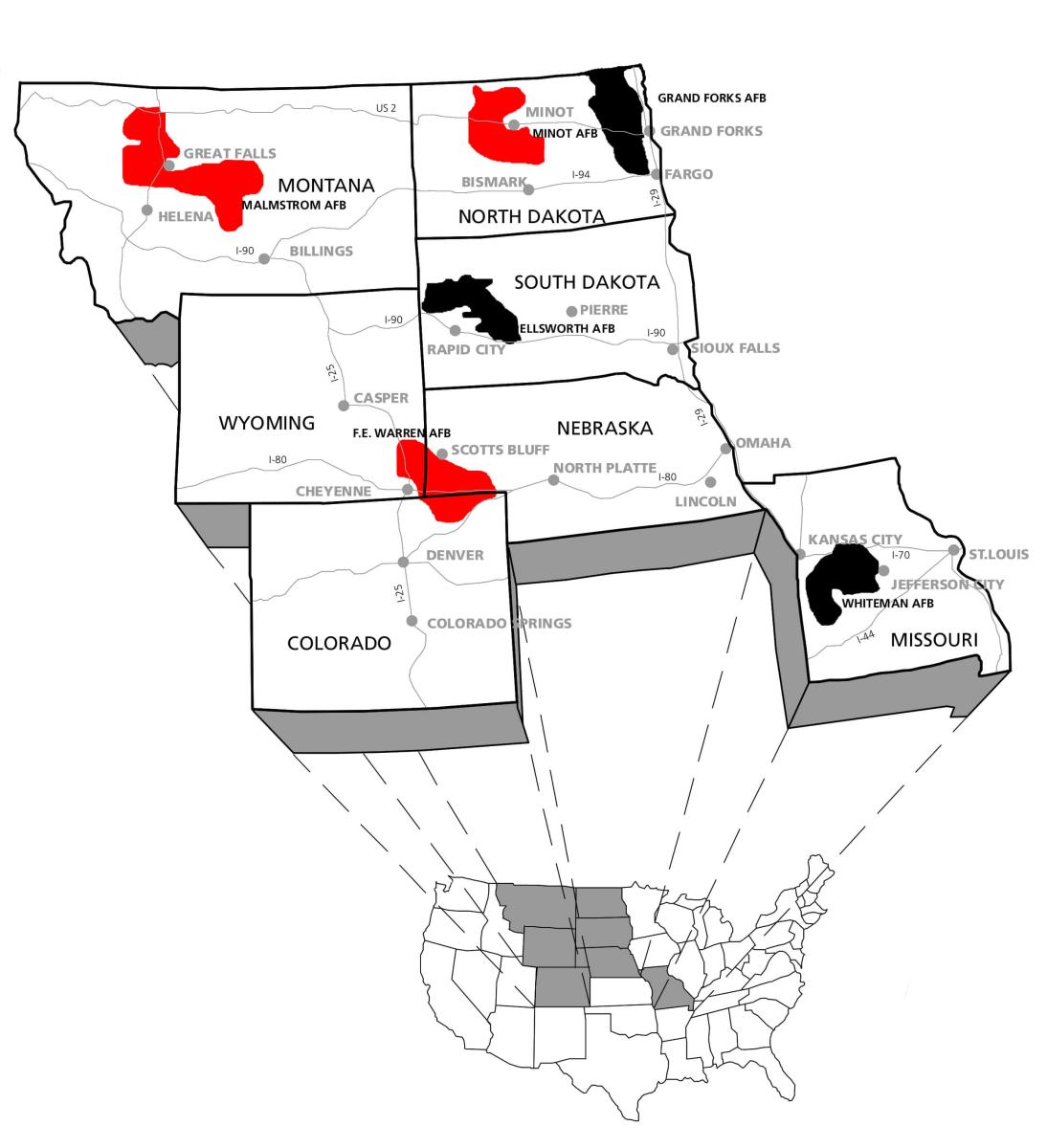
Image Courtesy of National Park Services
Missile Silos & Historic Sites to Visit in Wyoming
From rural ranchland to city bars, there are multiple spots that call out to Cheyenne’s Missileer heritage. In some spots, it’s just a little something, a piece of history, added to a location that can tell you about the city’s past. In other places, you’ll find entire missile silos and alert facilities. Let’s take a look at some of the places that speak of Cheyenne’s Cold War history.
The Concrete Ruins Abandoned Missile Site
Concrete ruins of missile silos sit alone in the middle of Wyoming ranch land today - a reminder of the cold war and the tense seriousness that sat in the back of many American minds.
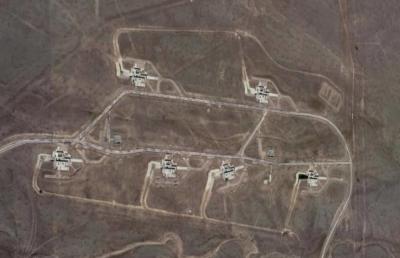
Like a scene straight out of a post-apocalyptic movie, shells of control buildings and vaults that were home to the enormous missiles echo with the slightest sound inside them. For their part, these days, the cows don’t seem to mind the ruins.
These previously government-owned islands stand in the middle of privately-owned ranch land. The remnants typically aren’t accessible without knowing the right guy, but the fact they are out there tantalizes the Sci-Fi fans inside us all.
F.E. Warren Missile Sites: Silos Converted into Homes
Not all the missile silos were abandoned to the free-range bovine and wildlife of the plains. Some properties were purchased and renovated into something completely different – in this case, a house! North of Cheyenne is one such dwelling.

Frontier Astronautics Missile Silo House
Purchased with the main intent of testing rocket elements, the owners of Frontier Astronautics took advantage of the fact they could live on-site. A Cheyenne resident procured the property by auction after the Atlas program was decommissioned. He then converted the former living quarters of the missileers at the Atlas E launch site into a livable home, complete with a dining room chandelier.

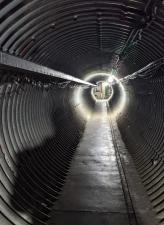
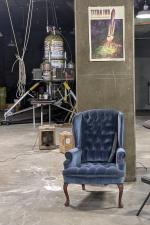
The dining room chandelier, the approach tunnel from the living space to the outside world, and the workshop fit for a rocket scientist king (note the lunar lander prototype in the background!)
Lacking windows, the current owners decked out the space with full-spectrum lightbulbs. Instead of the 1960s-era computers of the Command Center, a fireplace burns for heat in the corner of their living room where wall-to-wall bookshelves support dozens of tomes on the Cold War, the space race, aliens, and villainy instruction books.
Quebec 01 Missile Alert Launch Facility State Historic Site
From May to October, Quebec 01 Missile Alert Launch Facility State Historic Site is open to the public and allows you to descend below ground 50 feet to the capsule where the Missileers would receive the codes to launch the nukes if the president so chose.

The decommissioned US Air Force site is the only recreated Peacekeeper launch site in existence. It has an above-ground walking tour, a small topside museum, and of course, the descent into the capsule.
Boeing has loaned an Advanced Inertial Reference Sphere (AIRS) guidance system to the site to get a peek at the 19,000-part piece of high-tech navigation equipment.
F.E. Warren Missile Sites: Fort D.A. Russell Days & ICBM & Heritage Museum
If you happen to be in town the first weekend of Cheyenne Frontier Days in July, take advantage of Fort D.A. Russell Days at F.E. Warren Air Force Base.
They have a fantastic ICBM & Heritage Museum open to the public. If you have a valid military ID, you may be able to visit the museum at other times of the year. Be sure to call ahead, as availability has shifted.
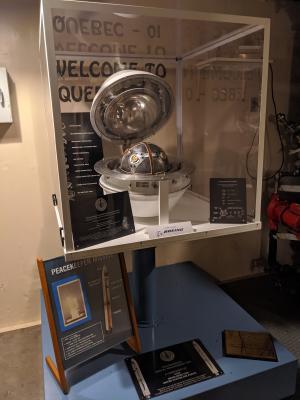
The Future of the Missile Program
The missile program faces yet another evolution in the coming years; no doubt we will see remnants of today’s program in the community in the decades to come!
Want to read more? Check out our article featuring Quebec 01!

